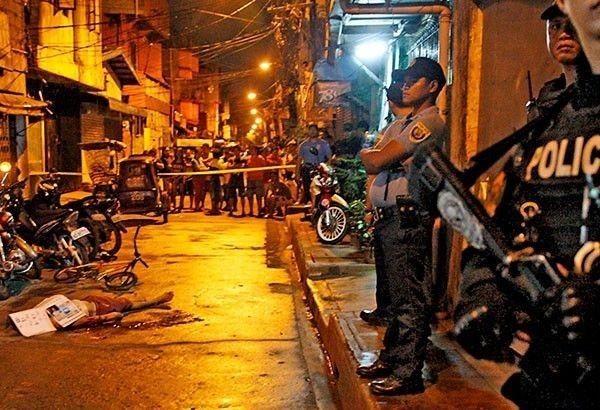Philippines tells European lawmakers to respect Manila's domestic policies

MANILA, Philippines — The Philippines shot back at the European Parliament on Friday after its critical statement on several issues in the country including President Rodrigo Duterte’s flagship crackdown on illegal drugs, saying that the body should respect Manila’s power to set out domestic policies.
On Thursday night (Manila time), the European Parliament adopted a resolution calling on the government to halt the bloody campaign against illegal drugs and to remove United Nations special rapporteur Victoria Corpuz from a list of individuals and groups it wants a court to declare as terrorists.
Presidential spokesperson Harry Roque, who at one point in his life was a human rights lawyer, said that Corpuz could present evidence to contest the government’s position.
“Let’s wait for the court to decide. It’s not for foreign lawmakers to call for her removal while we have local laws. That is also their policy in Europe,” he said.
The Justice department filed a petition in February calling on the courts to declare Corpuz and other individuals as terrorists.
The resolution, which according to the Party of European Socialists was adopted overwhelmingly, condemned the high number of suspected extrajudicial killings by security forces and execution squads alleged to be state-sponsored.
Roque urged the European Parliament to exercise “prudence” in issuing resolutions, adding that some of its members have close ties to the local opposition who are trying “to distort the reality that we have a working democracy where people now enjoy peace and order.”
It was also “inconsistent” that the European Parliament was criticizing the government’s war on drugs when the European Union had provided financing to support the program, according to Roque.
This, he said, showed that the EU recognized Manila’s responsibility to protect the health and safety of its citizens against illegal drugs.
Duterte won the 2016 presidential elections on the back of a strong anti-drugs and anti-crime platform. He has vowed to kill drug suspects who he said were destroying the country’s youth and future.
Since its launch in July 2016, the war on drugs has killed thousands and led to the surrender of many more individuals afraid of being the target of anti-narcotics operations.
Rights groups and activists meanwhile have slammed the government and its brutality in conducting the campaign, which they blamed for the deaths of thousands.
The European Parliament also warned that the Philippines would lose its GSP+ preferences if there would be no substantive improvement in the situation in the country.
GSP+ allows the Philippines to export more than 6,200 products to the EU market without being slapped with duties. The country retained its status only in January this year.
- Latest
- Trending



























